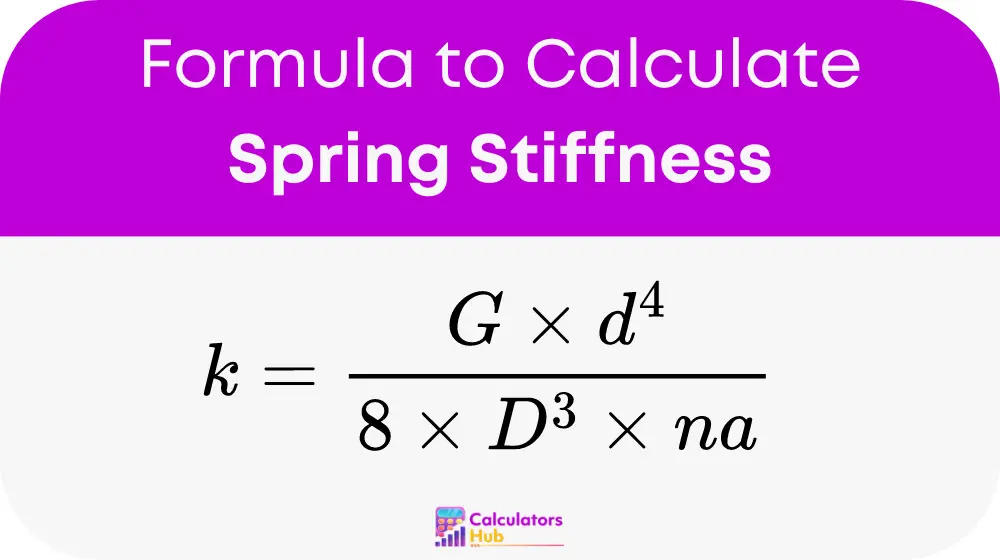The Spring Stiffness Calculator provides a quick and accurate method for determining the stiffness (k) of a spring. This value is critical in ensuring that mechanical systems function correctly without failure due to improper load handling. The calculator uses the following formula:
Formula of Spring Stiffness Calculator

where:
- k – Spring stiffness (N/m or lb/in)
- G – Shear modulus of the spring material (N/m^2 or lb/in^2)
- d – Wire diameter of the spring (m or in)
- D – Mean diameter of the spring (m or in)
- n_a – Number of active coils
The values for shear modulus (G) can often be found from material property tables or supplier datasheets. The mean diameter (D) is calculated as the average of the outer diameter and inner diameter, and the number of active coils (n_a) is the total number of coils minus any inactive coils at the ends.
Conversion Table for Common Materials
The following table provides typical shear modulus values for common materials used in spring manufacturing:
| Material | Shear Modulus G (N/m^2) |
|---|---|
| Steel | 79.3 x 10^9 |
| Stainless Steel | 77 x 10^9 |
| Copper | 45 x 10^9 |
| Brass | 39 x 10^9 |
| Aluminum | 26 x 10^9 |
This table helps users to quickly reference the shear modulus needed for the calculator without having to search for this information separately.
Example of Spring Stiffness Calculator
Problem: Calculate the stiffness of a steel spring with a wire diameter of 0.01 m, mean diameter of 0.1 m, and 20 active coils.
Solution: Using the formula:
k = (79.3 x 10^9 x (0.01)^4) / (8 x (0.1)^3 x 20) = 198.25 N/m
This result indicates that the spring will have a stiffness of 198.25 N/m, making it suitable for applications requiring this specific stiffness level.
Most Common FAQs
Spring stiffness, denoted as k, is a measure of a spring’s resistance to being compressed or stretched, dependent on its material, design, and dimensions.
The shear modulus (G) is a material property that describes the material’s response to shear stress and is typically found in engineering databases or material datasheets.
This calculator is design for helical cylindrical springs. For other types of springs, such as conical or torsional springs, different formulas are required.